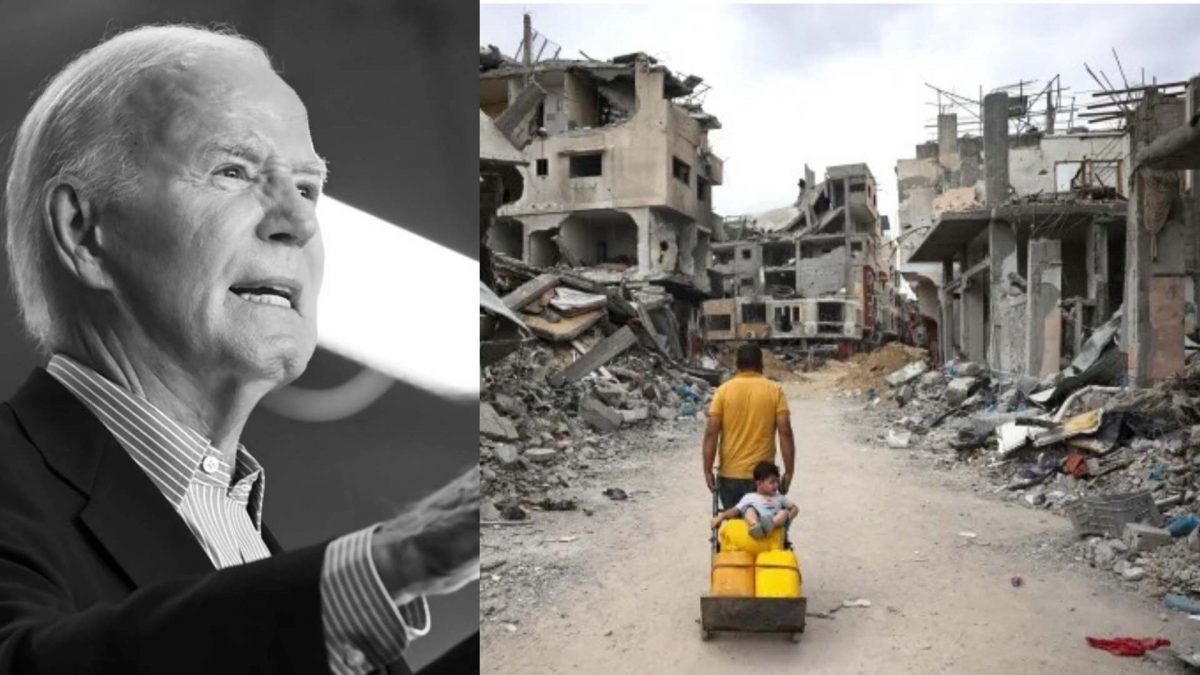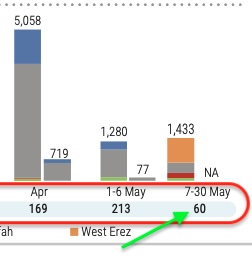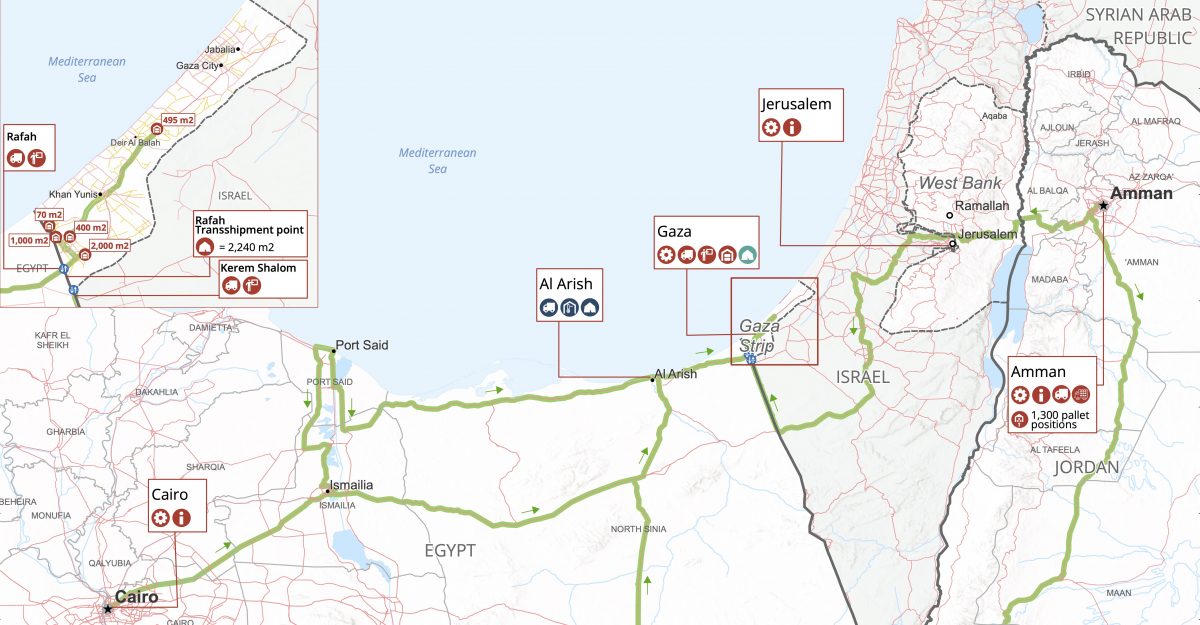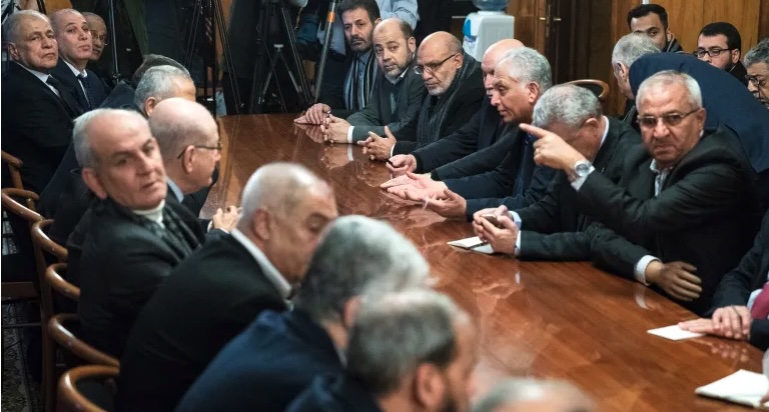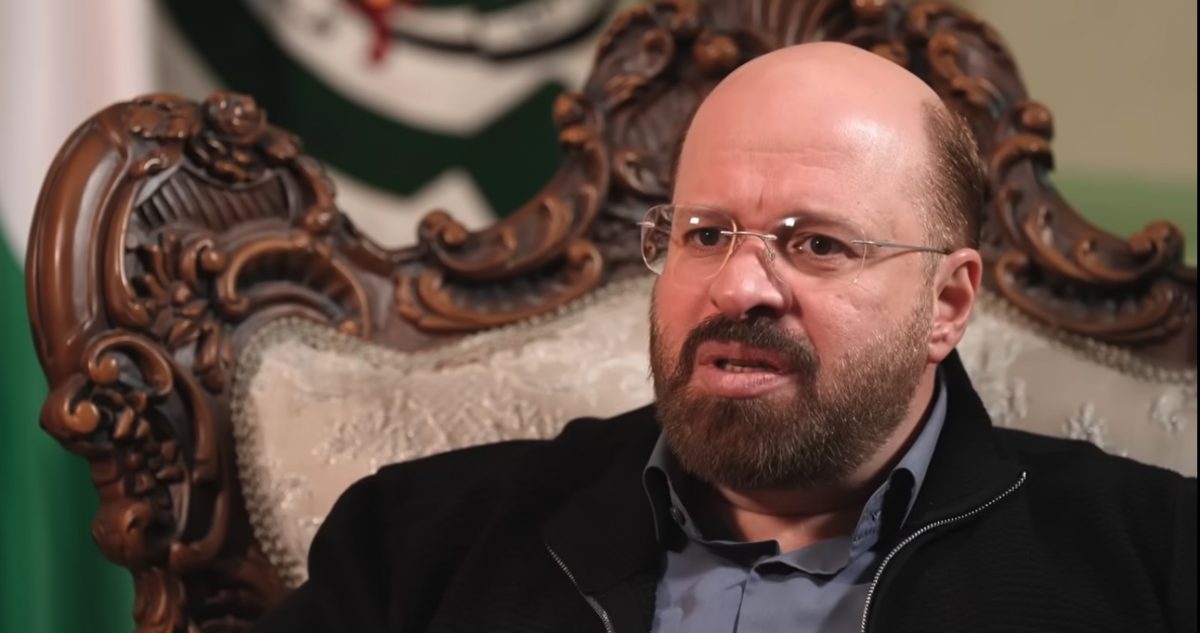Back in October of last year, I was already writing that Israel, in its reactions to Hamas’s breakout of October 7, was acting in a distinctly unhinged manner. I suppose you could perhaps understand that, given that within just 2-3 hours on that Saturday morning, the Hamas fighters and their allies destroyed the Israeli military’s entire “Southern Command” along with the aura of deterrent invincibility that Israel has counted on since its founding– through acts of extreme violence and ethnic cleansing– back in 1947-48.
It is now clear, however, that (like, I believe many other people) I seriously underestimated the sheer depth of the derangement to which large numbers of Jewish Israelis succumbed on that day, and in which they have been mired ever since. I have only watched a portion of Al-Jazeera’s excellent 80-minute investigation into the extent of the Israeli war crimes in Gaza. But much of what their team pulled together so cogently there has already been widely known. Not just the deliberate blocking of food and other vital necessities to the beleaguered population 2.3 million Gazans, but also the use of massive (and US-supplied) 1,000-lb and 2,000-lb bombs against urban areas, the deliberate destruction of broad swathes of urban infrastructure, the widespread forcing of Palestinian civilians to act as human shields, the attacks on hospitals, the systematized use of torture in prisons and detention facilities– and also the gleeful self-glorification with which so many Israeli soldiers have share their images of these acts quite freely and proudly on global social media.
At least the Nazis seemed a bit embarrassed by what they were doing inside their concentration and extermination camps. They built high walls around them and worked hard to keep their actions well away from public view. Not so, the very large numbers of Israeli soldiers who seem happy to share the records of their inhumanity very widely… and then seem to suffer no reprimands or disciplining from their superiors. Those superiors, indeed, at many levels of the Israeli military and at some of the highest levels of the government, seem pretty happy to have those acts of brutality widely displayed. I think it is supposed to have a deterrent effect on Israel’s potential rivals or foes. But this blatant brutality also seems designed to signal to Israel’s own domestic public that, “Hey look, we are re-establishing our deterrence! You should all be proud of us!”
…
So the genocide in Gaza and its many attendant brutalities grinds on. And Pres. Joe Biden has never taken the few simple steps it would take to end it. Such as: Simply ending the flow of US arms to Israel. Simply ordering the US military in the region to end its round-the-clock provision of vital operational intel to the Israeli military. Simply going to the UN Security Council and joining (rather than blocking) the global consensus that the conflict in Gaza has to end, right now.
Instead, throughout the past year, he has prevaricated, endlessly. His alleged “Red Lines” against Israeli escalation have simply dissolved, time after time after time. So PM Netanyahu has continued to push his luck and see how far he could go. He indicated to Biden back in spring that he would support the three-phase ceasefire-for-hostages deal that was the on the table. Then he went back to his cabinet and said of course he didn’t support it. (Biden was left hanging out to dry, after even persuading the rest of the Security Council to adopt his plan.)
In early April, Netanyahu and the hawks with which he surrounds himself considerably upped the regionwide ante when they ordered the assassination by air attack of two senior Iranian generals who were located in a diplomatic facility in Damascus, Syria. No U.S. response. So on July 30-31, Netanyahu ordered the killing in Beirut of Hizbullah military chief Fuad Shukr and also the killing in Tehran of Hamas’s over-all political head, Ismail Haniyeh. That, at a time when Biden administration claimed it was still working hard to negotiate the ceasefire-for-hostages deal for Gaza– and his prime negotiating partner in that effort was none other than Haniyeh itself.
What a humiliating position Netanyahu and his cronies had put Biden into. If Biden had wanted to retain any credibility at all for the role of the United States as a competent and trustworthy mediating force, then he should have punished Netanyahu immediately for that deeply provocative act. (See “cut off arms”, etc, above.)
But nothing.
For their part, both Hamas and the Iranians acted with great strategic restraint. Hamas stayed in the ceasefire negotiations and appointed a new Secretary General. The Iranian government said it would respond to the gross July 31 violation of its sovereignty at a time and place of its choosing, but it would hold its response in check for a while so as not to interrupt the (hopefully) continuing effort to secure the Gaza ceasefire.
Then eight days ago on September 28, Netanyahu– while sitting in the UN headquarters in New York, no less– ordered another extremely serious Israeli provocation: the use of a clutch of U.S. bunker buster bombs to demolish four buildings in Beirut underneath which the Israelis had (accurately) assessed that Hizbullah’s secretary-general Sayed Hassan Nasrallah was located.
At that point, the Iranian government, for whom Hizbullah and its very competent long-time head had long been key allies, decided the time for a firm response– though not the complete abandonment of strategic patience– had come.
On Tuesday evening (October 1), the Iranian forces launched a barrage of around 200 ballistic missiles across the intervening areas of Arab lands and targeted them, with remarkable accuracy, on four or five key military installations inside Israel.
The Israeli government, which as I well know exercises very tight censorship over the reporting of any journalists working inside the country, whether local or foreign, tried to downplay the effects and effectiveness of that missile barrage. But numerous Israelis living near the targeted facilities had their cellphone and their social-media accounts at the ready; and they very widely shared both the clips of the missiles raining down on the bases and the sounds of their own amazement and fear that this was happening. Those clips were all over the internet. See some of them, gathered by the WaPo’s Evan Hill, here.
Electronic Intifada’s Ali Abunimah happened to be in Jordan that evening. In the EI livestream on Wednesday he recalled the previous evening he had learned from Al-Jazeera that Iran had just launched its missiles. So he went up to the roof of his family home in Amman:
“We went up on the roof to watch and everyone was outside on their roofs and balconies cheering. And there’s lots of social media showing that people were celebrating all over Jordan, just as they were in Palestine… And it struck me that if this had been during the daytime, we probably would not have seen very much because the sky would have been too bright. And I don’t know if there were specific tactical or technical reasons why Iran carried out the attack after dark. But one clear result of that is that millions of people across the region witnessed it with their own eyes.
“And if that was Iran’s intention to make it visible in such a spectacular way, then it was a really brilliant move from a public relations standpoint.”
He also noted that of the large number of missiles flowing over Amman, he saw only a few attempts by interceptors to stop them. Pres. Biden very speedily got on the air-waves to assure Americans and Israelis that the air-defense operations against the missiles had been very effective, but the evidence from both Jordan and from Israel showed that this was clearly not the case.
—-
Pres. Biden is now caught in a politically fraught trap that is almost wholly Made In Israel. PM Netanyahu has been “playing” him for a sucker for many years now, and most especially since last October. And when Netanyahu and his cabinet undertook teach step in the series of escalatory provocations that they’ve launched since early April, they must have thought that– especially in a presidential election year here in the United States– they “had Biden exactly where they wanted him.”
But over those past few months, too, the government of Iran has shown considerable strategic wisdom. It acted with restraint in the (very limited) response it launched in mid-April to Israel’s killings of its generals in Damascus. It kept the focus tightly on the need to win the ceasefire deal for Gaza.
But that restraint, like the inaction/complicity of Washington in the face of Israel’s many provocations, served merely to encourage Israel’s many successive escalations. Clearly, the Israelis’ killing of Nasrallah was a tipping-point for Tehran. Tehran’s actions in response to it have thus far been impressively focused and strategic:
- The missile attacks launched Tuesday evening were impressive in size and capability but were tightly targeted on military facilities– including three key air-bases and the HQ’s of intel/spy agencies.
- The very next day, Wednesday, Iran’s president, Dr. Masoud Pezeshkian, visited Doha, where he had key meetings with the Emir of Qatar, with the Saudi Foreign Minister, and with representatives of other GCC leaders.
- Yesterday, Friday, the Supreme Leader, Ayatollah Ali Khamene’i delivered the first public sermon he has given for more than four years, assuring the congregation of tens of thousands who attended that Iran was ready for any response.
Within the past two days many voices have been raised in the United States and Israel calling for further, harsher punishment of Iran. Donald Trump has called for Israel to attack Iran’s nuclear facilities. Hawkish voices in Israel and the US have called for attacks on Iranian oil facilities. But through their assured and smart regional diplomacy, the Iranians appear for now to have prevented any such escalation– acts that would, if carried out, bring both the global economy and the whole worldwide political balance into extreme jeopardy. (Not to mention the possibility of the bodies of many of the 40,000 members of the US military now strung out throughout West Asia, being brought home in body bags.)
Not a great thing for Pres. Biden and his sidekick Kamala Harris to have happen on the eve of a consequential national election.
I am not privy, of course, to whatever Pres. Biden might have said to Netanyahu and other Israelis in recent days. By Biden’s own (somewhat muddled) telling, he has “been discussing various responses” to the Iranian missile barrage with the Israelis. But the fact that the Iranians have lined up an impressive coalition of Arab parties to stand with them in the present face-off certainly constrains whatever Washington or Tel Aviv might be able to do. (As it very likely constrained whatever their two militaries were able to do to try to intercept the Iranian missiles back on Tuesday night.)
The skimpy nature of the international support Biden thought he could count was also indicated when he mumbled something about “the G7” all supporting his actions on Iran– though the G7 is supposed to be only an economic-affairs bloc… In the current international environment, and in the face of repeated, serious Israeli provocations, not to mention genocide and war-crimes, it seems that not even NATO could agree to line up behind the US-Israel alliance.
For their part, of course, the Chinese must be quietly congratulating themselves on having pulled off a significant Saudi-Iranian rapprochement in March last year; and Beijing, Moscow, and many other non-NATO powers must have notice that the United States’ global standing has taken such a steep nose-dive throughout the past year…
—-
My current expectation, then, is for no large-scale US or Israeli retaliation against Iran within the immediate future. (I may be wrong. I hope not.) But meantime, the Israeli military will be redoubling its efforts to do what it knows best, which is genocide, genocide, genocide. And not just in Gaza, but also now in Lebanon to a very significant degree, and also in the West Bank.
The onset of winter will be particularly harsh for the barely surviving Palestinian population of Gaza. But so long as Washington continues to dominate the whole world system, then those families and amazing people will continue to be abandoned to their fate.



